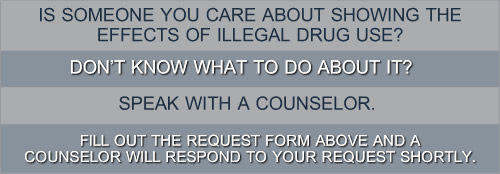
Illegal Drug Effects
There are many drugs that users might become addicted or dependent on. Many of these drugs are legally prescribed to users and they might start to need to have them even when they have dealt with the pain or any other original reason for which these medicine might have been prescribed. Users might not be able to get access to it through legitimate means and might turn to sources which could, in turn, make the usage of these substances even more risky.
However, there are many other substances which are completely illegal. These substances generally carry a steep prison sentence with them for manufacturing, distributing and processing.
Understanding Illegal Drugs
In the United States drugs are divided into different schedules up to five. Depending on which schedule a drug is in, it could be completely illegal or could be a controlled substance, which means that doctors might be able to prescribe them to certain patients. This article is a breakdown of several illegal drugs in different schedules, the use and abuse of which can greatly affect the user's body, mental health and lifestyle along with those closest to him or her.
Effects of Schedule I Drugs
Schedule I drugs are so called because the government deems that they have a high potential to be abused, that the drug is not currently accepted to be part of any medical treatment and that it is deemed to be a safe drug to consume. These are some of the most popular recreational drugs that are used for recreational purposes.
Heroin
This opiate is a depressant which causes the user to feel intense euphoria straight after ingesting the drug. Heroin is normally injected intravenously but it can be smoked and sniffed or snorted, too. Heroin affects the brain and immediately causes the user to feel an intense wave of euphoria. The user might also feel dry mouth, strangely clouded mental processes and heaviness in the arms and legs. The user will then feel drowsy and awake at different times.
After using several times, heroin users will develop a tolerance in which they need to consume more of the drug to achieve the same effect that a lesser dose used to achieve. This is extremely dangerous because heroin affects many of the areas of the brain that can keep an individual alive - the area that controls breathing and heart rhythm. Heroin use can cause an extreme change in blood pressure that may cause a cardiac or respiratory arrest.
Ecstasy
MDMA, which is more commonly known as ecstasy, is classified as a Schedule I drug in the United States. MDMA is used recreationally and taken as a pill in club and party settings. The user generally reports feeling intense euphoria and empathy towards other people. The use of ecstasy might also improve the user's self-confidence and image, give users a sudden surge of energy which allows him or her to dance all night long and a perceived alteration in their consciousness and perception. Users also report feeling more alert and awake after they had taken the drug. Additionally, many users experience a decrease in pain or an increase in physical numbness, hyperactivity and a mild version of psychedelia in which users might believe that they can 'feel' the music or the colors.
Along with these pleasant effects, taking MDMA also makes users feel intensely anxious, paranoid and depressed while being one of the few drugs that actively kills neurons in the brain. Users may also clench their jaws, grind their teeth when they are asleep, dry mouth and constant thirst and lack of appetite.
The after effects of MDMA include depression, paranoia, anxiety, fatigue and irritability along with vertigo, diarrhea or constipation, exhaustion, random aches and pains, dizziness and lightheadedness. When experience an overdose, users feel confused, may suffer from panic attacks and hallucinations or delusions. The user might also twitch involuntarily, might feel their heart racing and intense chest pain. In extreme cases, users might experience cardiac arrest and respiratory arrest, which can lead to death.
MDMA users are also at higher risk due to the fact that unscrupulous drug manufacturers may mix other drugs into the Ecstasy pill and the user might end up consuming and mixing drugs that could be lethal without being aware of it.
Cannabis
Cannabis is the most widely abused illegal drug in the United States. It is a Schedule I which means that it is illegal to consume and carry. Marijuana is a very controversial drug that is currently thought to have some medical uses by some states but it is not considered to be so by the federal government.
There are many ways in which users can smoke cannabis. All of these ways are considered to be Schedule I drugs since they are derived from cannabis. These derivatives include hashish, hash oil, kief and resin, which is the residue left by the cannabis plant when smoking it. Cannabis is generally smoked although it can be taken orally with food.
Some of the immediate effects of cannabis consumption are a state of relaxation and enhanced consciousness, a great and constant urge to laugh, greatly increased appetite, reduces pain and nausea, and the user feels like he or she has an enhanced appreciation of those things around, including things like music or films. Users may experience a change in their perception of time and things might appear to be much slower or faster than they normally are.
Users have also reported feelings of headache and nausea, coughing and asthma, which can be set on by the continuous use of marijuana. Users also experience feelings of anxiousness, lightheadedness and dizziness. Some users actually faint after smoking marijuana, particularly if the dose is higher than they are used to. Users might also have panic attacks, particularly if they ingest a heavy dose, heavier than the user might be accustomed to taking.
Most drug offenses are tied to marijuana use. If you or someone you love might be dependent or abusing any of these drugs, reach out to a mental health counsellor with experience dealing with addiction issues.
- Questions?
